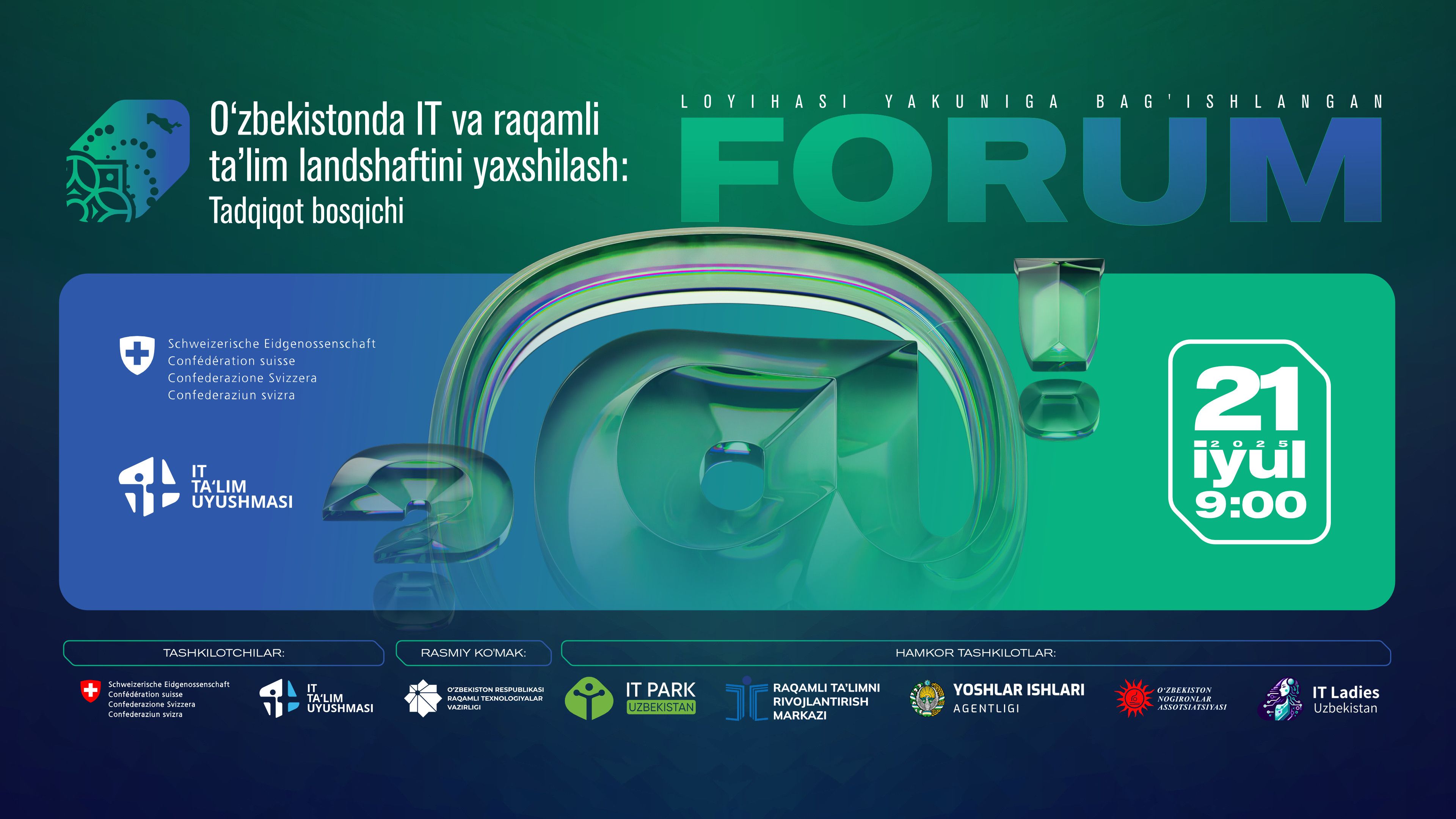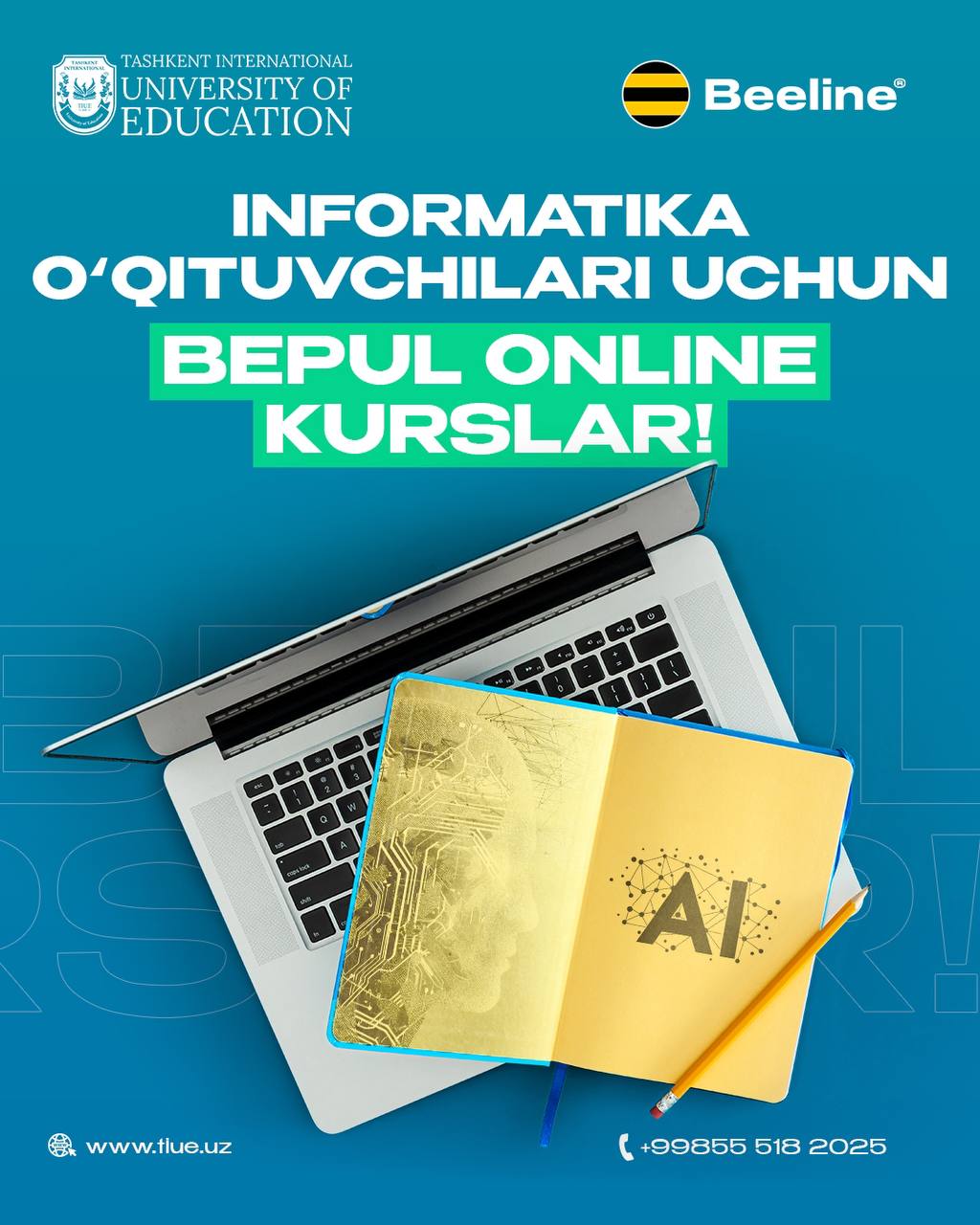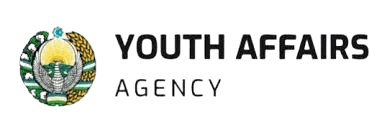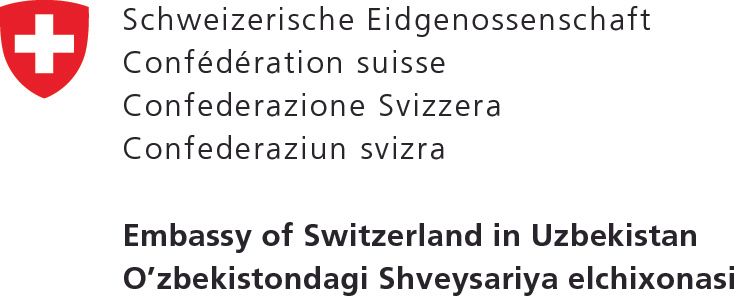Improving the IT and Digital Education Landscape in Uzbekistan
About the project
“Enhancing the IT and Digital Education Landscape in Uzbekistan: Phase I. Foundation” is a comprehensive research initiative to understand and improve digital literacy across Uzbekistan, creating pathways for inclusive digital transformation. The project is Implemented by the IT Education Association of Uzbekistan with financial support from the Swiss Agency for Development and Cooperation (SDC).
Project Overview
Goals & Vision
To create an inclusive digital ecosystem where every citizen has equal access to digital opportunities and can participate in Uzbekistan's digital transformation
Research Focus
Comprehensive analysis of digital literacy levels across all regions of Uzbekistan, employer’s needs, skills gaps, and accessibility challenges
Future Plans
Expanding educational programs, developing AI-powered learning platforms, establishing strategic partnerships with leading tech companies and educational institutions on the basis of Survey results
Project in numbers:

4000+
Participants in the Digital Literacy Survey

100+
IT companies engaged in the IT Employers’ Needs Assessment

14
Regions of Uzbekistan reached

20+
IT experts interviewed for qualitative insights

50+
Women trained through IT education webinars
IT Trends: Experts’ View
Videos
Blog

RESEARCH: 97% OF PEOPLE IN UZBEKISTAN CONSIDER DIGITAL SKILLS THE KEY TO SUCCESS

You're invited to the Forum on the Development of IT and Digital Education in Uzbekistan

FREE Courses for Computer Science Teachers!
Project Partners








Developed by














